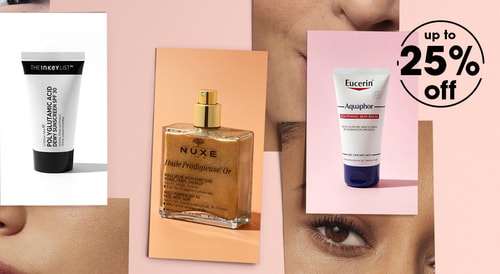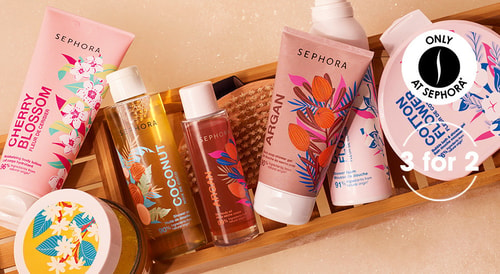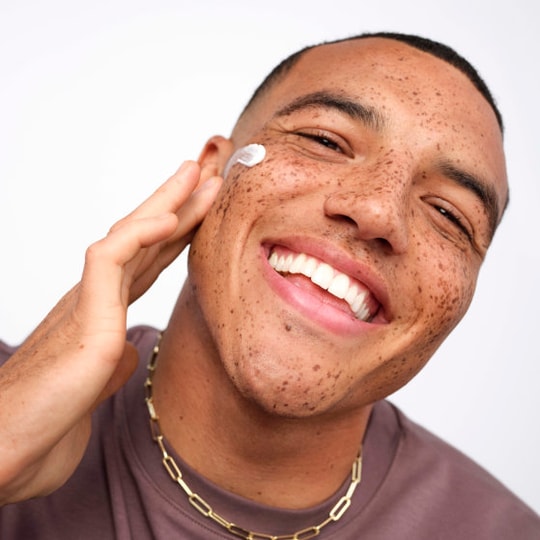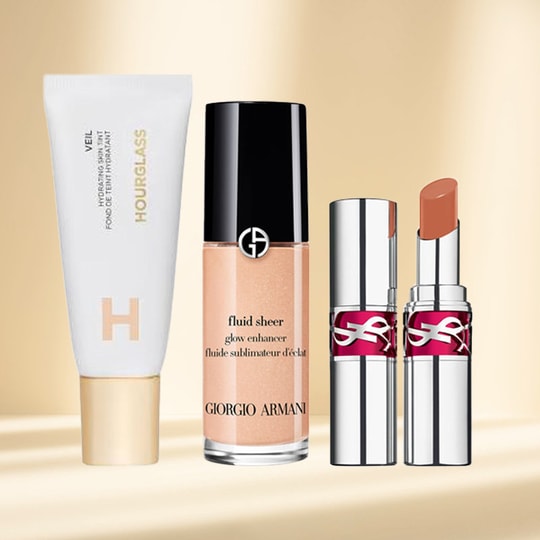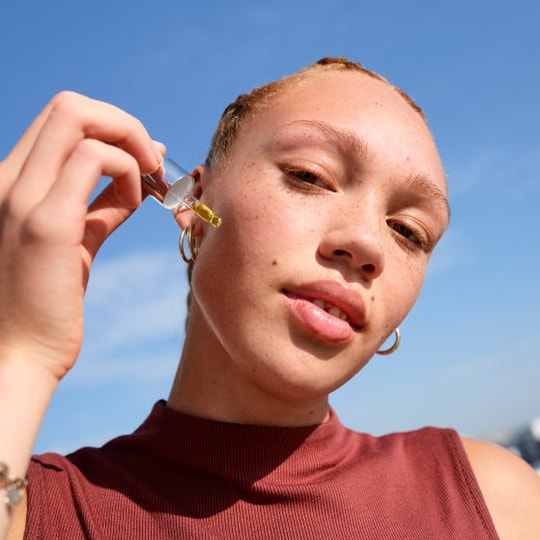11 Best Retinol Serums and Creams for Everyone
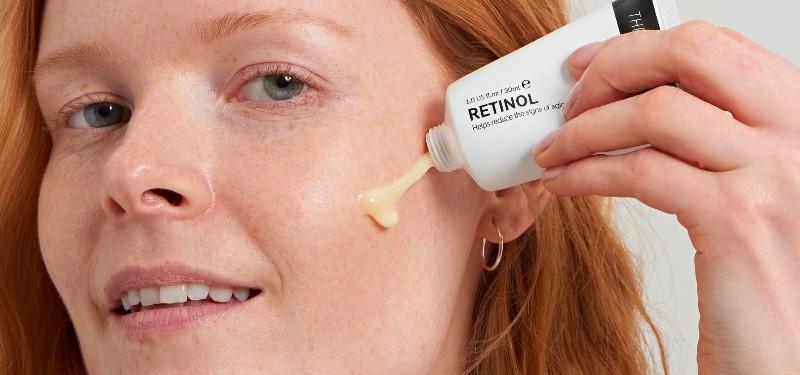
Needing no introduction, Retinol is the skincare ingredient everyone’s talking about - and for good reason. It’s one of the *most* effective skincare ingredients on the market and is guaranteed to speed up cell renewal, improve skin texture and dial up your luminosity. The downside? It can be irritating if you don’t suit the dosage to your skin. There are various strengths of Retinol on the market but don’t fret, we’ve picked the best Retinols for every skin type, area and concern.
Best Retinol serums and creams at a glance - our top picks:
Best Retinol for beginners: The INKEY List Retinol Serum, £12.99
Best Retinol for sensitive skin: La Roche-Posay Retinol B3 Anti-Ageing Serum for Sensitive Skin, £44.55
Best eye cream with Retinol: MEDIK8 Crystal Retinal Eye 6, £54
Best night Retinol cream: DRUNK ELEPHANT A-Passioni Retinol Cream, £66.90
Best affordable Retinol: The Ordinary Retinol 1% in Squalane, £7.90
Q: What is Retinol?
A: A form of Vitamin A, Retinol is used in skincare for its potential skin-loving benefits. As part of the Retinoid family, which includes Retinoic Acid (Tretinoin), Retinaldehyde, and Retinyl Palmitate, Retinol plays a key role in promoting skin health and addressing (almost) all the skin concerns that you may have.
Q: What does Retinol do to your skin?
A: There’s a reason so many people have jumped on the Retinol hype. So, what is Retinol good for? And what does Retinol do for your face? The complexion benefits of Retinol are huge. It stimulates Collagen production, a protein that helps maintain skin firmness and elasticity. The result? Fine lines and wrinkles appear reduced, helping to minimise signs of ageing and sun damage.
Retinol renews the skin by encouraging cell turnover, which means it helps the skin shed old, dull or damaged cells and generate new ones. Its exfoliating and renewing properties can improve skin texture, leading to a smoother and more even-toned complexion. Retinol can also be an effective acne treatment, preventing clogged pores while reducing inflammation and fading dark spots. It's a dream ingredient for fresh, vibrant, and more youthful-looking skin.
Q: How to use Retinol
A: Using Retinol requires some care and attention to minimise the risk of irritation and maximise its benefits. If you're new to Retinol, start by incorporating it slowly into your skincare routine, using a lower concentration (around 0.25% or 0.5%) to allow your skin to get used to it.
Wondering how to apply Retinol? Wash your face with a gentle cleanser and pat your skin dry before applying a pea-sized amount of Retinol to clean, dry skin. This helps to enhance absorption. Once applied, follow up with a heavier moisturiser to hydrate and lock in moisture.
Most importantly, sun protection is crucial when using Retinol, as it can increase your skin's sensitivity to sunlight. Our non-negotiable is to always use a broad-spectrum sunscreen with at least SPF 30 during the day (even on cloudy days!).
Q: How long does Retinol take to work?
A: It may take some time for visible results to become noticeable, and improvements to your skin may be gradual. What works for you may not work for your family member or best friend (we know you usually share everything). Individual responses to Retinol can vary depending on the skin concern being addressed, the percentage of Retinol used, and unique skin characteristics.
As the skin's natural cell turnover cycle is approximately 28 days, it takes about a month for new skin cells to replace old ones. But Retinol may improve your skin texture and tone within a few weeks. Reduction in acne concerns, hyperpigmentation, and the appearance of fine lines and wrinkles may take longer, often several weeks to a few months.
Our top tip? Remain patient. Consistency is key with your skincare routine. Listen to your skin and adjust your routine accordingly. Your skin will thank you.
Q: How often should you use Retinol?
A: How often you use Retinol depends on your skin type, the specific product you're using, and how well your skin tolerates the ingredient. Should you use Retinol everyday? Not if you're a beginner. This might upset your skin at first as Retinol can be potent, so we advise not being too hasty. Begin by using it once or twice a week for the first few weeks. Then if your skin tolerates Retinol well without much irritation, you can gradually increase how often you use it over time. Move to using it every other night and, eventually, to every night, if appropriate for your skin.
If you experience lots of dryness, redness, or persistent irritation, tone down the frequency of Retinol application. Consider the product strength, too, as higher concentrations of Retinol may require more gradual introduction with less frequent use. Please note that Retinol and sensitive skin should be approached cautiously. If you have skin concerns or conditions, or if you're unsure about using Retinol, we advise consulting with a dermatologist before adding it into your routine.
Q: When to start using Retinol
A: The ideal time for when to use Retinol depends on your skin concerns, age, and lifestyle. So, at what age should you start using Retinol? If you're using it as a preventative measure against signs of ageing, you can start using Retinol in your late 20s or early 30s. Or it can be introduced during teenage years or early adulthood to address acne concerns and promote clear skin. You may wish to start using Retinol earlier or later in life, or whenever uneven skin tone, rough texture, or enlarged pores become noticeable. It's also great for those of you who've lapped up significant time in the sun without adequate sun protection (remember to always apply SPF, yes, we're looking at you).
Q: What can't you use with Retinol?
A: While it’s a skin-saving solution, there are some ingredients that Retinol doesn’t play nice with. Don’t make the same mistakes as us when we first started, and avoid using it with Benzoyl Peroxide that's commonly found in acne treatments, AHA’s (like Glycolic Acid), BHA’s (like Salicylic Acid), and Vitamin C. If you want to still use them all, consider applying them on alternate days or nights.
Steer clear of harsh cleansers and physical exfoliants when using Retinol, as you don't want to potentially damage the skin barrier or increase sensitivity. And, be cautious with products containing Alcohol or other drying ingredients. Also, it's generally not recommended to use Retinol during pregnancy, so if you're pregnant or breastfeeding, make sure to consult with a healthcare professional before use.
You don’t have to completely change your routine though; Ceramides, Hyaluronic Acid and Niacinamide will actually improve your results with Retinol. We’ve tried and tested the very best Retinol, and have listed the game-changers below.
By Sephora UK Skincare Editorial Team
Writers and experts
Updated: 05 March 2024
-
The INKEY List
Retinol Serum
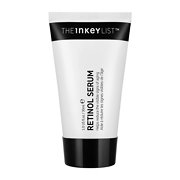
Best Retinol for beginners
If you’re a Retinol newbie, then The INKEY List Retinol is the perfect product to ease you in. Beloved by the beauty community for its gentle nature, we can’t fault the brightening effects of this Retinol serum. Derived from Vitamin A, watch your fine lines smooth and complexion clear with consistent use. We love how this slots into our regular skincare routine. Start slowly by using it once a week, and let this super serum work its magic.
Perfect match product: Once you’ve nailed the basics, it’s time to build up to the stronger formulas, like THE INKEY LIST SuperSolutions 1% Retinol Serum. This 1% formula is stronger for maximum brightening results, with Squalane and Apricot Kernel Oil so you can step up your skincare without fear of irritation.
-
La Roche-Posay
Retinol B3 Anti-Ageing Serum for Sensitive Skin
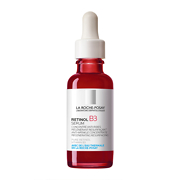
Best Retinol for sensitive skin
Even if you have sensitive skin, Retinol can still work wonders for you. This 0.3% Retinol and B3 serum is a gentle giant, with all the texture evening benefits of Retinol plus skin barrier support to keep your skin from getting irritated. One for those looking for that post-party glow, it contains Glycerin to instantly plump and firm the complexion - we don’t know how we lived without it.
Perfect match product: Make it a match made in heaven by using La Roche-Posay Anthelios UVMune 400 Invisible Fluid SPF50+ Sun Cream after applying. Retinol use (even at a mild percentage), can cause skin sensitivity to sunlight, so keep your skin extra safe with this sun saviour.
-
Sunday Riley
A+ High-Dose Retinoid Serum
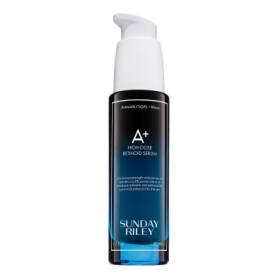
Best for stronger results
Everything Sunday Riley brings out is an instant fave, and this is no exception. Stronger on the scale but with results to match, this is for seasonal Retinol users looking to up the ante. At 6.5% Retinol, it’s one of the best Retinols we’ve tried, leaving skin looking brighter and rejuvenated without redness or flaking. It gains its mesmerising colour from the Blue Green Algae formula which enhances the radiance of UV-damaged and congested skin. This is on the pricey side for a serum, but we think it’s worth the investment.
Perfect match product: If you’re squeamish about the 6.5% formula, Sunday Riley does have lower doses available like the Luna Sleeping Night Oil. Wake up to baby-soft skin and start your day the bright way. Or, if you’re wanting to top up your overnight results, use on top of your High Dose Retinoid.
-
MEDIK8
Crystal Retinal Eye 6
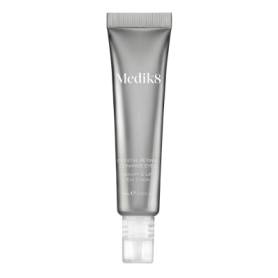
Best eye cream with Retinol
In need of a wake up call? Us too, and this Medik8 Retinol eye cream works wonders. Our holy grail product for all of our eye serum prayers, this adds hydration, reduces fine lines and brightens without irritation. A gentle release Retinol, it can be used on the most sensitive skin to visibly de-puff your eyes by the time your alarm goes off. Use after a long day, but don’t blame us if everyone asks your sleep secrets.
Perfect match product: Meet the next level of Vitamin A, Medik8 Crystal Retinal. This serum pairs perfectly with the Medik8 eye cream for a full-face brightening effect. It uses Retinal which delivers results 11 times faster than traditional Retinol. Add to your routine for rapid and radiant results.
-
Murad
Resurgence Retinol Youth Renewal Serum
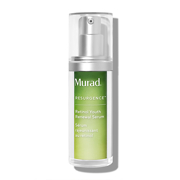
Best for every age
Luminosity, liquefied. This fast-acting Retinol eye cream smooths and strengthens the delicate eye area so you can convincingly fake a solid eight hours. A must-have for every age group, we can't get over the featherlight texture and results-driven formula. Filled with plant-powered goodness like Swertia Flower and Red Algae, this is more reviving than an iced latte on a hot day (even the Pret one), so get ready to reap the radiance.Perfect match product: Combine with Murad Resurgence Retinol Youth Renewal Night to create the routine of dreams. With up to 250% more renewing power than traditional Retinol, this is guaranteed to increase your glow while boosting the skin barrier.
-
Drunk Elephant
A-Passioni Retinol Cream
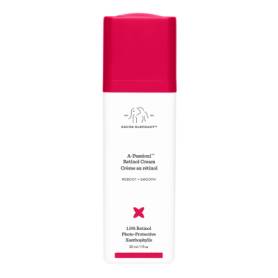
Best night Retinol cream
Drunk Elephant fans rejoice, the cult-favourite brand has created a Retinol to add to your routine. Supercharged and silicone-free, this formula is a great Retinol for acne as it has a gentle 1% formula. While Wild Cherry and Kale might sound like a green smoothie recipe, they also promote skin renewal and collagen boosting when applied to the skin. Get your fruit fix and watch your complexion glow - we’d call that a win-win!
Perfect match product: Partner with DRUNK ELEPHANT A-Gloei™ - MaRetinol Oil A-GLOEI™ VIRGIN MARULA OIL WITH RETINOL for the ultimate skin smoothing experience.
-
The Ordinary
Retinol 1% in Squalane
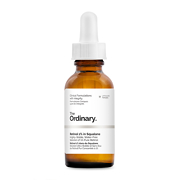
Best affordable Retinol
We enjoy when something is as effective as it is affordable - and that is certainly the case with The Ordinary Retinol. Boosting a 1% formula that’s highly stable and water-free, this is great for Retinol veterans and newcomers alike. A potent formula, we’ve seen a softer, fresher complexion in a matter of weeks. Apply in the PM and sleep soundly while waiting for the results.
Perfect match product: To keep skin’s hydration up while using Retinol, look no further than The Ordinary Natural Moisturizing Factors + HA. Filled with barrier-boosting ingredients like Ceramides and Amino Acids, keep skin cool, calm and comforted with this duo.
-
Paula's Choice
Clinical 1% Retinol Treatment
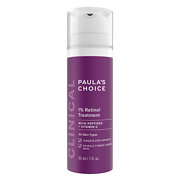
Best Retinol cream for scars
If you like Paula's Choice 2% BHA Liquid Exfoliant, then you’ll LOVE this Paula's Choice Retinol cream. It contains a powerful 1% Retinol treatment that reduces the appearance of fine lines, UV damage and scarring all at once. With added Peptides and Liquorice Root Extract to soothe the skin, you don’t need to worry about irritation. We’re also a big fan of the treatment’s redness-reducing effect. Whatever your skin type, you should snap this up immediately.
Perfect match product: SPF is crucial when starting a Retinol treatment as the skin is more sensitive to UV rays. Make it impossible to forget with Paula's Choice Resist Skin Restoring Moisturiser SPF50 simultaneously sorting all of your moisturising and protection needs.
-
CeraVe
Resurfacing Retinol Serum with Ceramides & Niacinamide for Blemish-Prone Skin
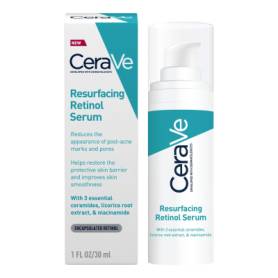
Best for exfoliating and brightening skin
Add a little extra love into your routine with CeraVe's Resurfacing Retinol Serum. Specifically formulated for blemish-prone skin, this gently exfoliates to help fade the appearance of post-acne marks. Encapsulated Retinol and Liquorice Root Extract even the skin tone, while Niacinamide and three essential Ceramides protect the skin's natural barrier. We recommend using it in the evening only and always follow with SPF protection in the daytime (every day). Start small by using CeraVe Retinol once a week, then build up once your skin is no longer sensitive to it.
Perfect match product: Go one step further to refresh your face by cleansing skin with CeraVe Blemish Control Face Cleanser. This gentle face wash lathers up easily to remove dirt, impurities and excess oils without stripping the skin of moisture. Massage into the skin with wet hands morning and evening.
-
Olay
Retinol Max Serum
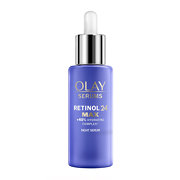
Best Retinol for mature skin
Revive your skin's glow with Olay Retinol Max Serum. Hydrating and smoothing, this fragrance-free formula is packed with potent Retinoid, Vitamin B3, and 40% more hydrating ingredients to treat thirsty skin. Apply this serum daily to see visible improvements in fine lines and wrinkles, dark spots, and pores. We love that our skin is smoother, brighter, and firmer - all in just 28 days use. Trust us, you'll have no regrets incorporating this into your skincare routine.
Perfect match product: If you like Olay's Retinol Night Serum, then you'll love their Regenerist Retinol 24 Night Moisturiser. This penetrates moisture deep into the layers of your skin with 24-hour hydration. Alternate between this and the serum every night, and make sure to moisturise every morning with a facial cream containing SPF.
-
Kiehl's
Retinol Skin-Renewing Daily Micro-Dose Serum
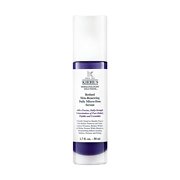
Best for youthful results
Our perfect routine? Lots of sleep, water, and treating your skin with Kiehl's Retinol Serum. This micro-dose serum packs a powerful punch. Featuring pure Retinol, Peptides and Ceramides to help with surface skin turnover and strengthen the skin barrier. The formulation visibly reduces the look of wrinkles and refines your skin texture. Retinol benefits with minimal signs of discomfort; no redness, dryness, or peeling. Sounds like a skincare dream if you ask us.
Perfect match product: Moisturise your skin to the max with our bestselling Kiehl's Ultra Facial Cream. Suitable for daily use, apply this moisturiser after Kiehl's Serum for happy, hydrated skin, all day long.



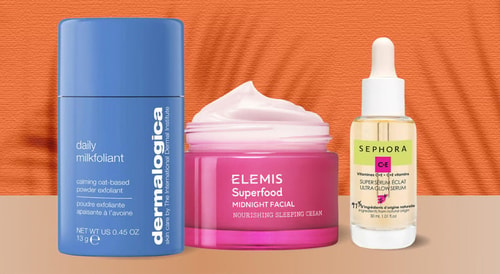
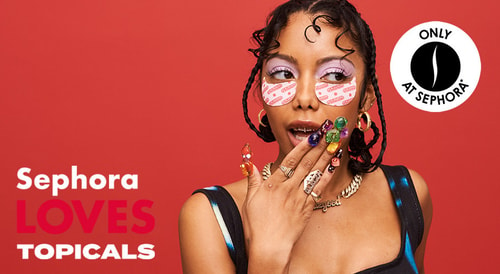
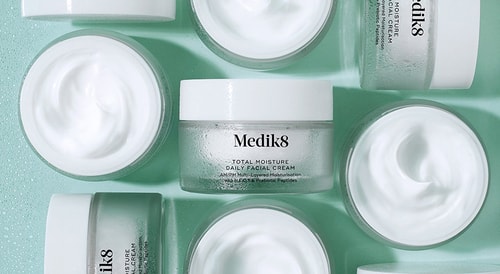
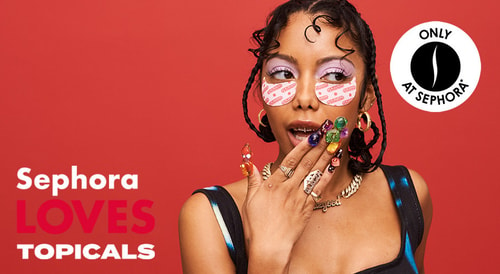
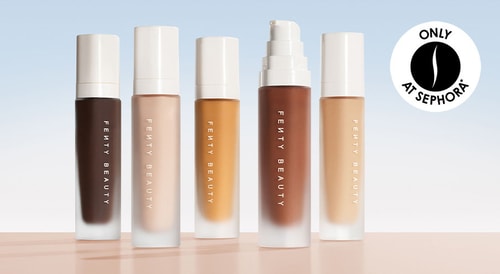
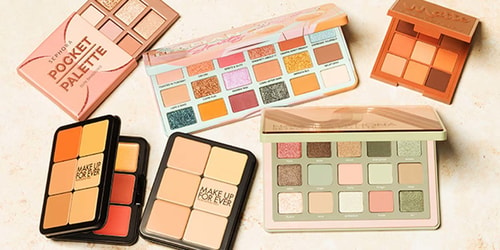
_1684159898.png?202405081314)
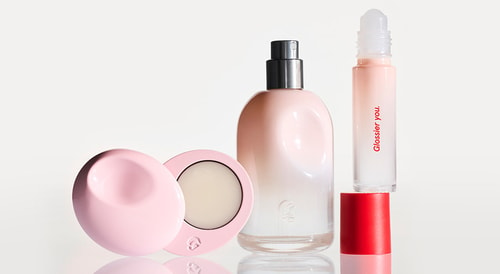
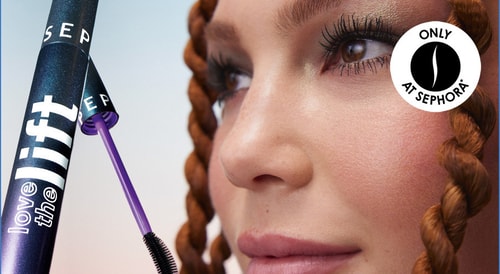
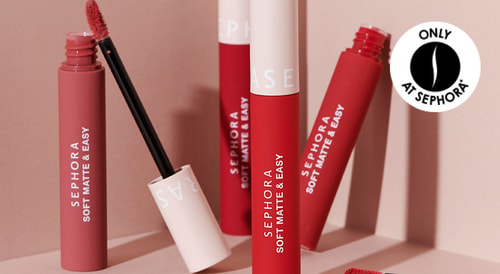
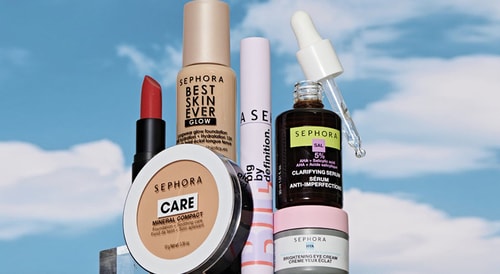
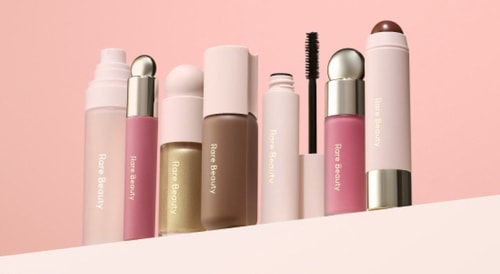
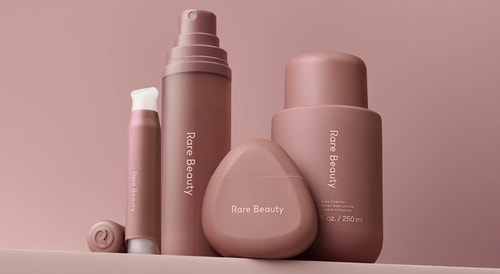
_1712735965.jpg?202405081314)
